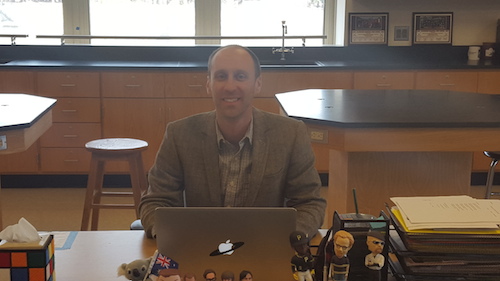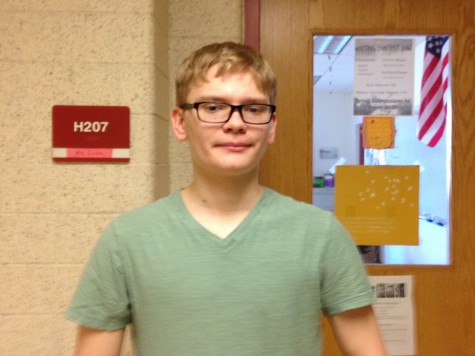New science class encourages innovation, independence
March 7, 2016
In many classes students don’t have a lot of choice, but with physics teacher Daniel Welty’s new science innovations class, students have a chance to explore a topic they have a passion for.
In Welty’s physics classes he introduced a project for students called Genius Hour, where students had a chance to explore a topic within the STEM field, but now it’s becoming a whole class of its own.
“It’s Genius Hour, but a full semester of Genius Hour,” Welty said. “So students will be able to come in and choose a project in the first week or so and work on the project every day through the semester.”
Welty has also been known for his flipped classroom style of teaching, but this class will differ from it and many other styles of teaching.
“The biggest difference about science innovations compared to every other class here is you the student chooses the curriculum,” Welty said. “Last year it was physics, astronomy, tech, and engineering, but as a regular science class it can be anything: biology, chemistry, physics, and any subset of that.”
Welty also communicated with teacher Don Wettrick from Noblesville High School in Indiana, who served as the inspiration for science innovations.
“He does an innovations class, that’s a full year. Students can choose any topic, so he is kind of a pioneer, or at least the most well-known teacher,” Welty said. “The students there have to apply to take the class, they have to write a proposal on what their projects are gonna be. So it’s a little competitive, and really popular there.”
“This will be not only a chance for the parents to see what we are doing, but other educators as well,” Wettrick said in one of his Youtube videos on his innovations classes.
The class would also require students keeping up with modern day science, and paying attention the STEM field.
“I also want them to be global; they are gonna be blogging,” Welty said. “Students will also be getting a Twitter account specifically for following science news, science journalists, so they may connect with people who are actually doing science globally and outside our building.”
“I feel it’s a course our school really needs; students can actually have a passion for science right now and can learn about a specific topic,” Welty said.










